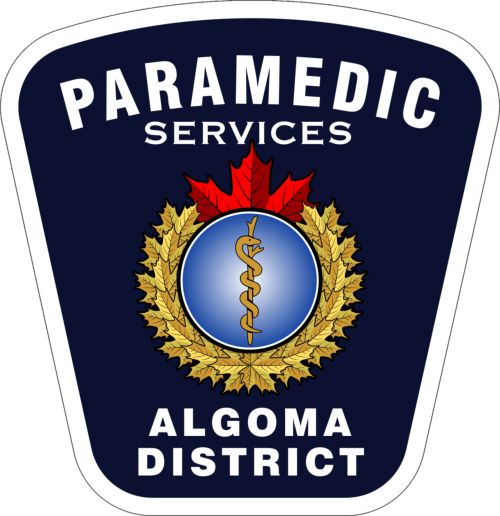Paramedic Service Stepped up During Recent North Shore Cyber Attack
Code Grey saw ambulances rerouted; extended partner network tapped.
Thank a paramedic today. Image courtesy Algoma District Services Administration Board.
On Monday, March 24th, the North Shore Health Network (NSHN) announced on its website it was “back online and actively recovering from a cyber incident that began on Wednesday March 19, 2025.”
As was widely reported, the incident resulted in a temporary loss of internet access, and no access to the regional Electronic Medical Record (EMR) as all three NSHN locations (Blind River, Thessalon, & Richards Landing – Matthews) were isolated from the Northeast network and the eHealth Ontario network. With a breach into the online system, it was necessary to shut down pathways to wider networks to make sure whoever had broken security could go no further.
Shore Report contacted NSHN CEO Tim Vine for details of how the network fixed the problem, ensured patient safety, and maintained service during a very tricky time.
Tim Vine, President & CEO of the North Shore Health Network. Image courtesy NSHN.
“We have done immediate remediation on our networks,” Vine said, “with the support of the regional IT group, Health Science North, and our third-party cyber security provider. We are currently doing a full after-action/debrief process to identify further improvements. I am sure we, along with the region, will have helpful learnings from this to improve security and response for future events.”
While emergency departments remained open to the public during the offline period, what was not immediately apparent was a resulting ambulance service disruption to the local ERs.
Vine explained that patients arriving by ambulance tend to be the most acutely ill, and access to online diagnostics and readings is paramount. With those tools temporarily out of reach for NSHN, ambulance patients were shifted to facilities that had access to crucial files.
“Unfortunately for a short period during the Code Grey we needed to go on ambulance by-pass at all three sites,” Vine explained. “We took the hard decision to go on by-pass until we could once again provide safe care to patients. Once we found an alternative approach, we were able to lift the by-pass.”
According to Vine, neighbouring hospitals in Elliot Lake, Espanola, and Sault Ste. Marie stepped in to take ambulance patients, and “proved to be exemplary partners.”
91 km route between Thessalon’s NSHN site and Sault Area Hospital. Image courtesy Bing Maps.
Obviously, increased travel time by ambulance, especially on wintry highways and roads, is a strain on service delivery. It would appear Algoma District Paramedic Services responded to the temporary bypass order efficiently and skillfully, delivering to partner hospitals while the NSHN sites remained offline.
With approximately 48,000 sq. kms in their coverage region, no access to centrally located facilities would have greatly increased both drive times and strain on paramedics. It would also have meant an ambulance patient from the Thessalon area, for instance, would have to travel at least an hour to Sault Ste. Marie for care, instead of the relatively short ride to the Thessalon NSHN site.
Cyber attacks on healthcare infrastructure are, sadly, not unheard-of in Canada. A 2023 report from Global News notes “data breaches and ransomware, [have] become increasingly common in the country.”
Vine assures NSHN patients “there was no data loss, corruption, or privacy violation during the intrusion on our network.”
It would also appear this was not a ransomware attack.
The recent Ontario Health Coalition annual report reminds us that “Ontario’s public hospitals and public health care system are now funded at the lowest rate per person in Canada.” Given the ongoing focus on medical access in the province, and especially in rural and remote communities, North Shore residents don’t need yet another worry. Ontario Health has developed a coordinated response model for cyber security in health facilities. Hopefully, the NSHN debrief on this incident will help strengthen the system.
“I want to thank the patients, residents, and clients we serve for their patience,” Vine said, “NSHN staff for their perseverance, and the region for their support. It has reassured me that NSHN has a great team, and that we have come a long way in regional inter-hospital cooperation.”







